Community and collaboration in research
How do you effectively co-design research with the community and build an element of sustainability into it?

Approach to research
Dr Annie Te One
I had a very politicised upbringing, as my father was involved with the tribal settlement of our lands. This was the overarching theme of my childhood, and it instilled in me the values of research that I undertake. I call myself a Kaupapa Māori researcher. Fundamentally, it means that my research is a response to what my community or iwi needs. There is a conversation with these groups before the research begins, to understand what they would like the research to achieve.
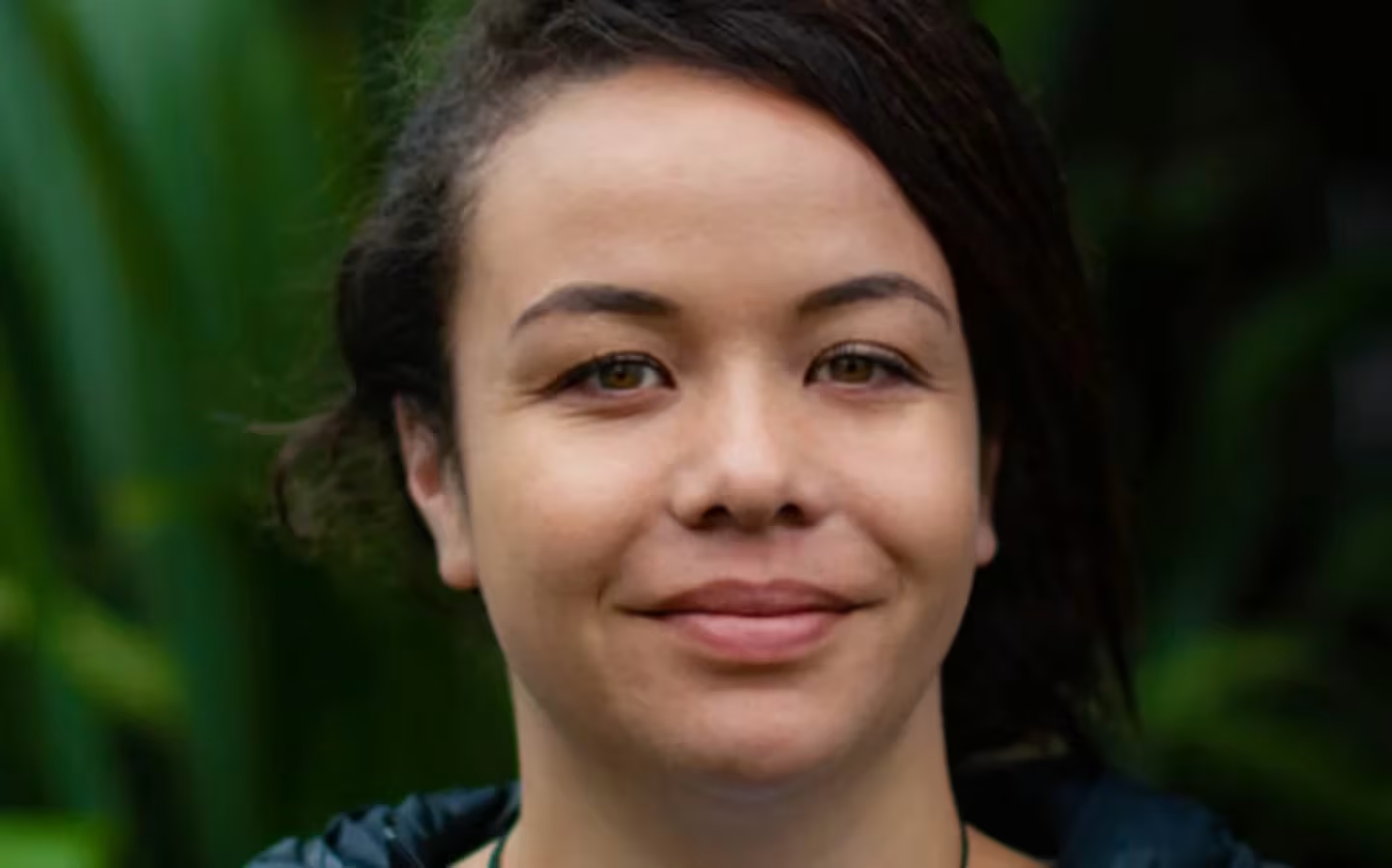
Dr Annie Te One
Dr Annie Te One
I call myself a Kaupapa Māori researcher. Fundamentally, it means that my research is a response to what my community or iwi needs.
Dr George Parker
As a queer and non-binary person and a parent, my programme of research works to ensure that health services that sit around our trans whānau during pregnancy, birth and early parenting are safe, inclusive and affirming. We work closely with the community to understand the family-building experiences of trans and non-binary people, and to identify the gaps in and improvements needed from the services that trans whānau interact with when having their babies.
Our new project, Warming the Whare, is a 3-year participatory action research project partnering with two perinatal mental health services who are committed to trans-inclusive service delivery. Our project will journey alongside these services as they build their capability for trans-inclusive service delivery.
We work closely with the community to understand the family-building experiences of trans and non-binary people.
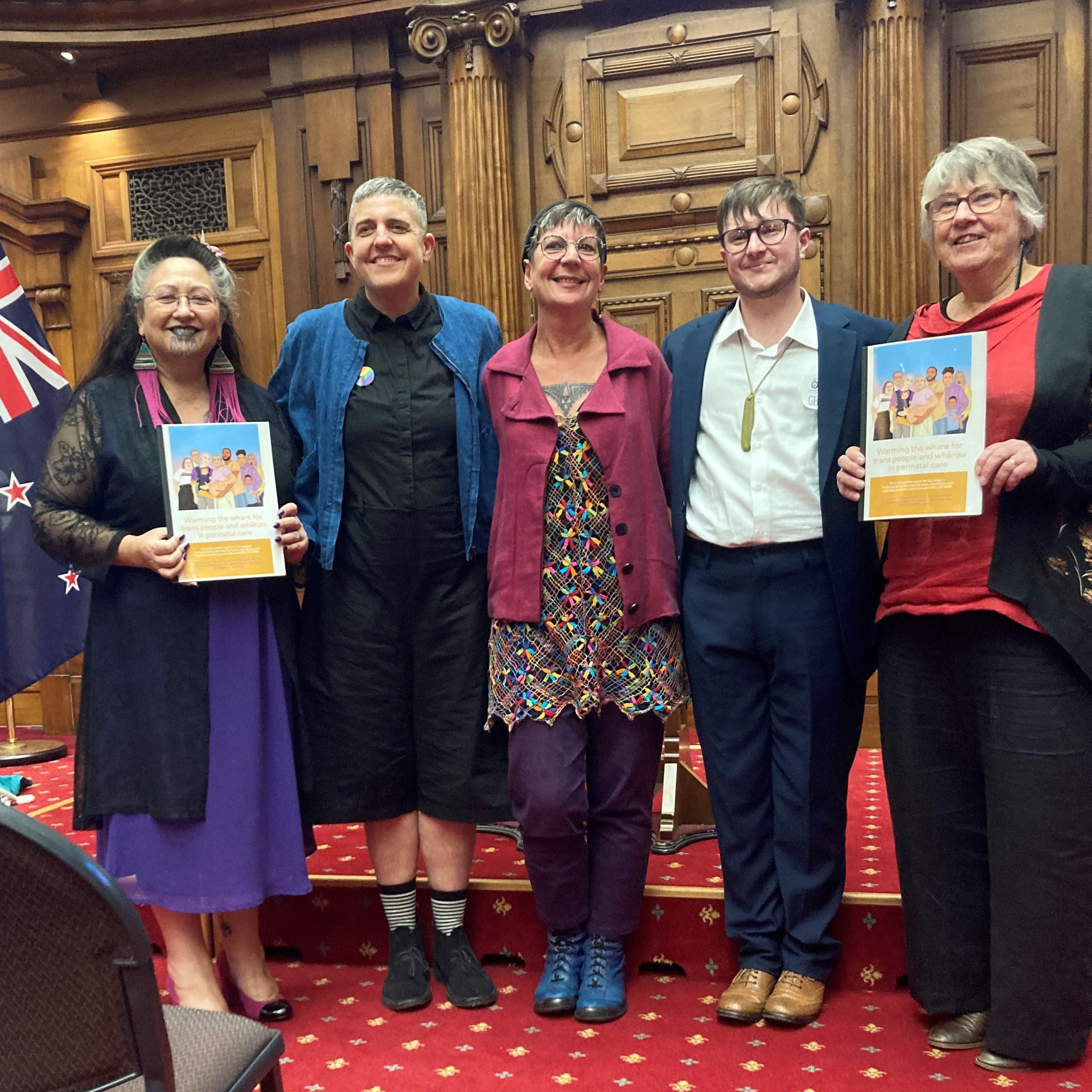
Dr Elizabeth Kerekere, Dr George Parker, Associate Professor Suzanne Miller, Scout Barbour-Evans, Professor Sally Baddock
Dr Elizabeth Kerekere, Dr George Parker, Associate Professor Suzanne Miller, Scout Barbour-Evans, Professor Sally Baddock
Dr Emily Beausoleil
As a political theorist, I’m continuously fascinated by how we translate ideals we hold dear into everyday life. For a long time, it was all about voice and how to amplify marginalised voices in mainstream conversations. But as a Pākehā researcher asking these questions in Aotearoa, I realised that ‘voice’ isn’t the issue, the issue is listening. How do we foster better listening among more advantaged groups, especially when it’s easy and even socially rewarded not to listen?
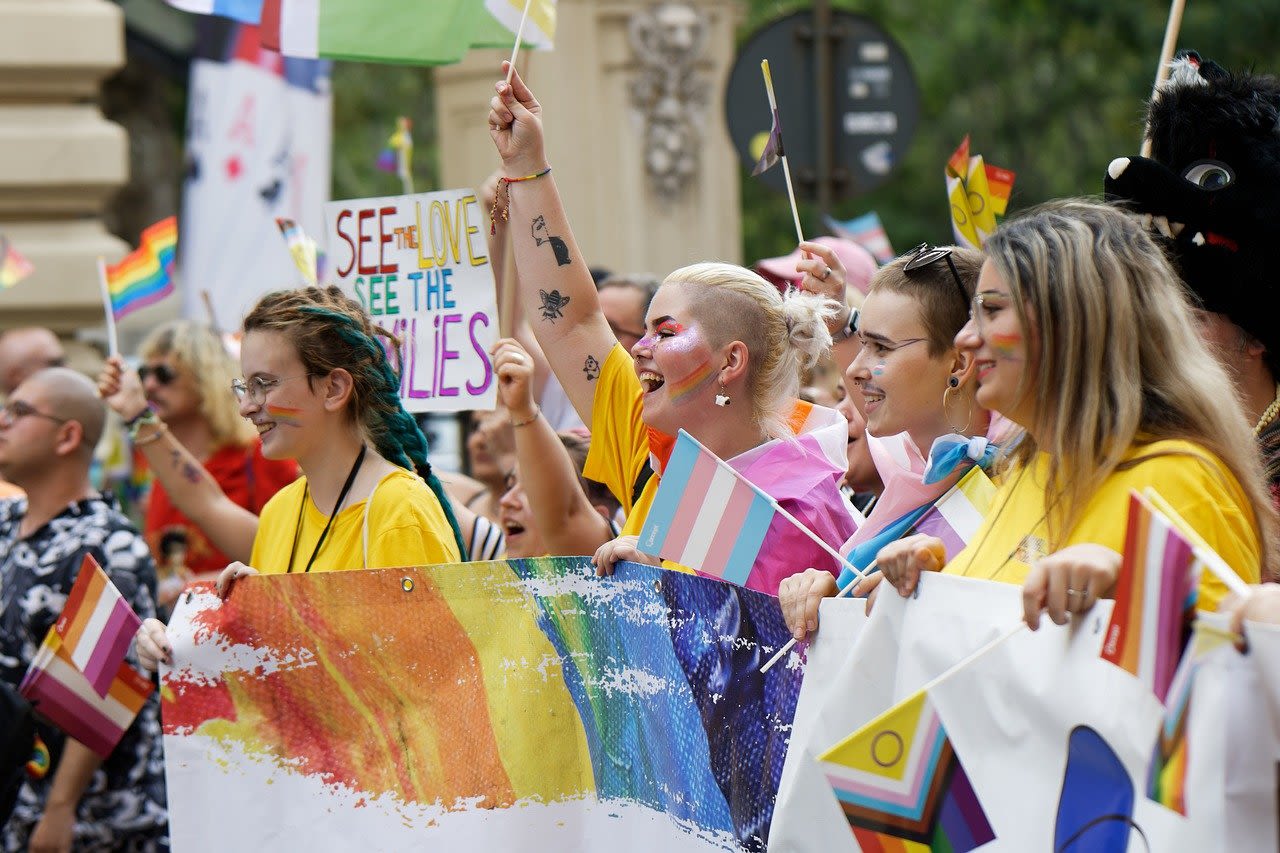
How do we foster better listening among more advantaged groups, especially when it’s easy and even socially rewarded not to listen?
Co-designing research projects
Annie
The Generation Kāinga project that I’m currently involved in includes researchers who are part of the community we collaborate with, and we wanted to make sure their voices were heard. It’s important to recognise that you may be an expert in your field but that doesn’t make you an expert in somebody else’s experience. If you truly want to get to the heart of those experiences, you have to be able to let others lead you there.
The Kāinga project is really exciting, because the young people are completely clued in, and the outputs are already looking so different from conventional ones. For instance, we’re building a tiny home in the backyard of the Auckland-office that we work in. We’re talking to people about homelessness, so why not help them build a home? If the process is participatory, then you expect that the output is also participatory and community-based.
It’s important to recognise that you may be an expert in your field but that doesn’t make you an expert in somebody else’s experience.
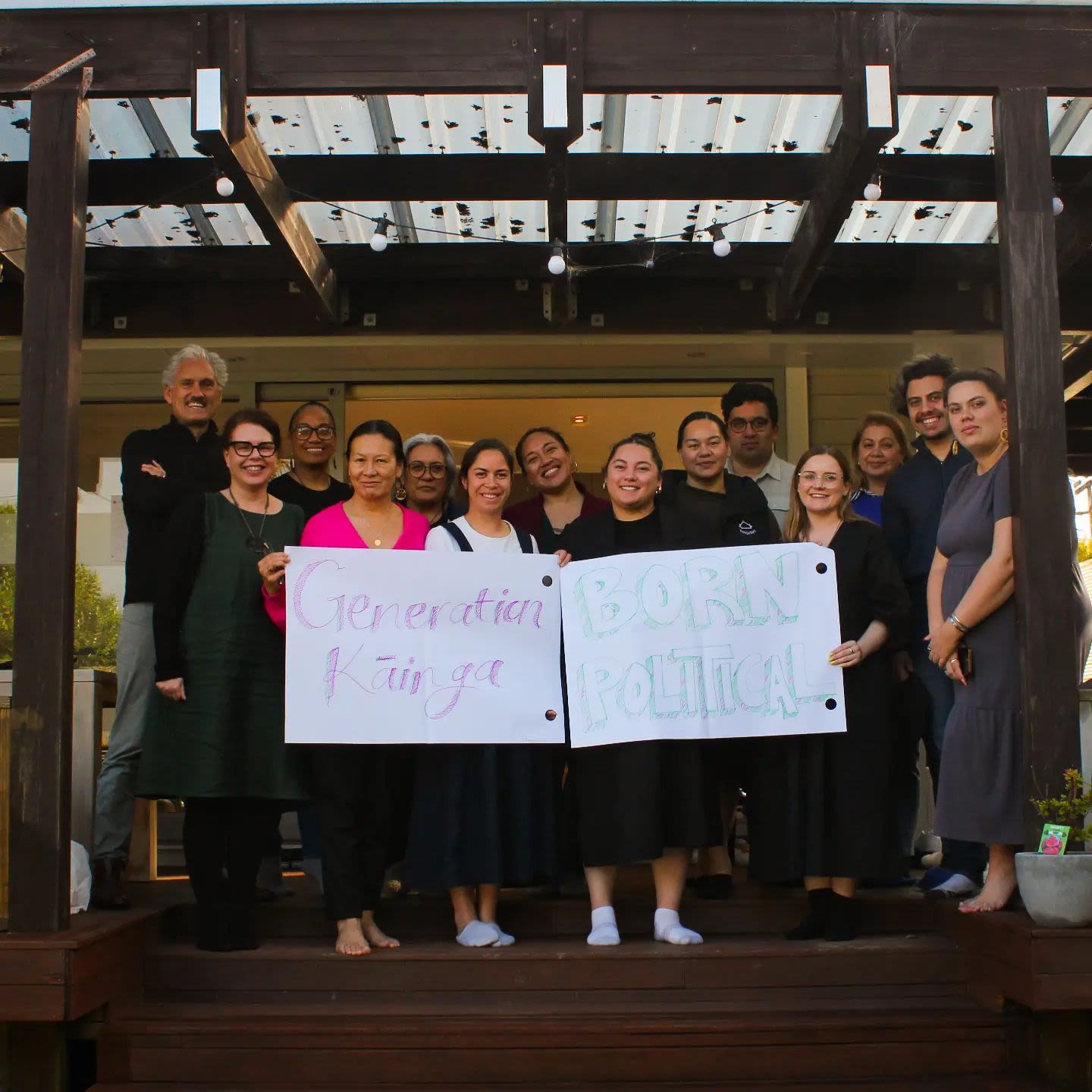
Emily
Relationships are a huge part of the Hearing the Difference project, and the people I’ve worked with from diverse creative backgrounds to learn about their strategies to foster listening in the face of challenge have been very welcoming.
A mentor once told me that receptivity was like a martial art, and our openness is a powerful thing in enabling us to be led by that which is emerging. We often carry inheritances of how we think about research and its rigour. But when you’re working with community, you realise that a more iterative, co-designed methodology is a different form of bringing in that rigour. It could be something as simple as the way we are trained to ask questions—because what if the way you’re asking the research question is getting in the way of the thing you want to learn? Initially, my approach used to be to go into the community, understand what they do, and translate it into academic language, but it’s now evolved into "how can we do this together?"
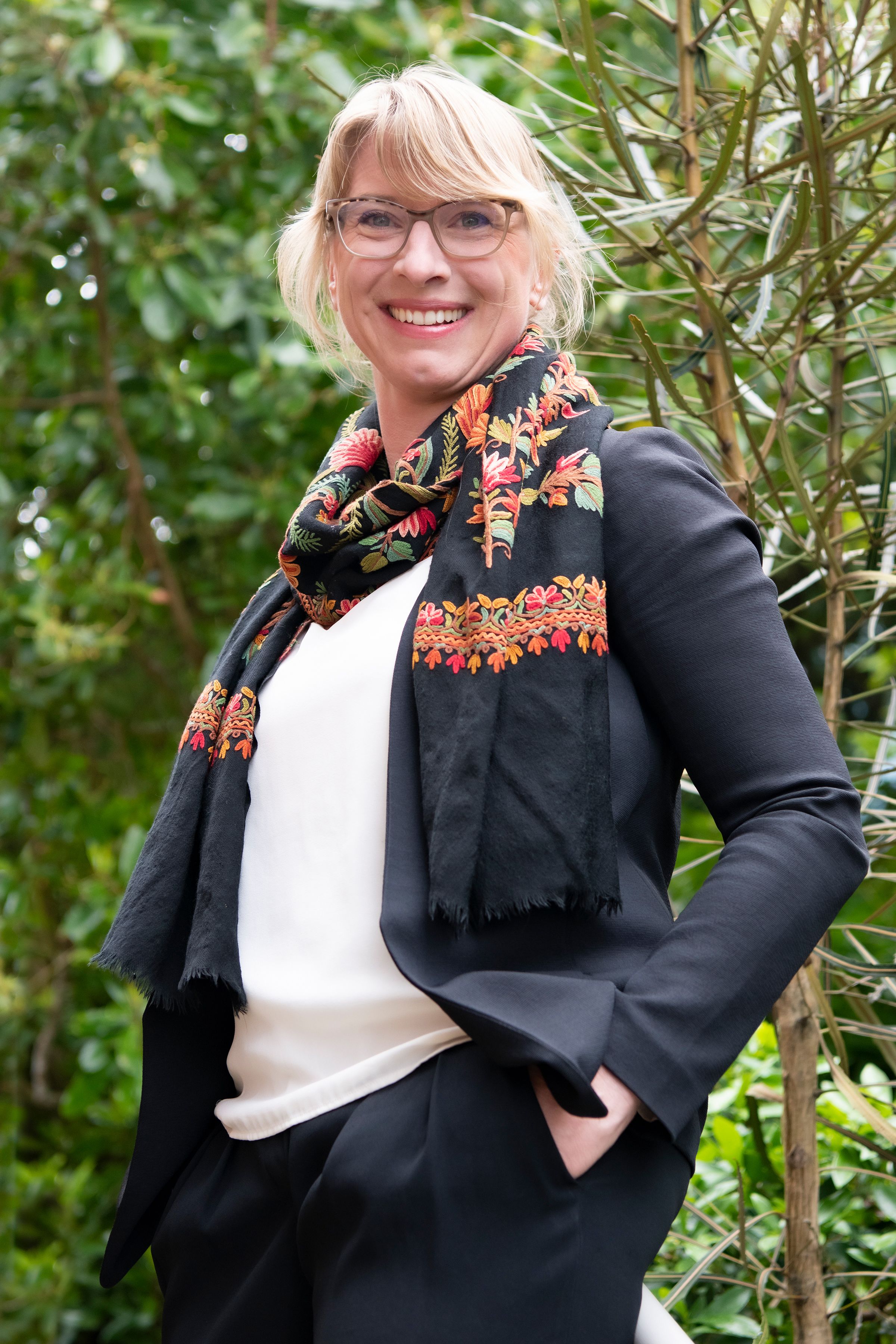
Dr Emily Beausoleil (Image Services, Te Herenga Waka)
Dr Emily Beausoleil (Image Services, Te Herenga Waka)
Our aim is to learn about the process of implementing inclusive practice in services in a way that is service-led but supported and resourced...
George
In the Trans Pregnancy Care Project, we identified that the perinatal workforce was not currently well equipped for inclusive practice. This lead us to develop Warming the Whare, an inclusive practice guideline. In our new project with perinatal mental health services, we are using the guideline as a starting point to support the services in their trans inclusion journey. Our aim is to learn about the process of implementing inclusive practice in services in a way that is service-led but supported and resourced by both researchers and people with lived experience.
Incorporating sustainability
Emily
Funding enables a key portion of the work, but three years is a short term. Filling out a grant application involves a huge sense of responsibility because you’re representing a joint vision. But I also see a lot of valorisation of the ‘new’ in research.
In fact, continuance is the key challenge. It’s really important to maintain and keep growing that energy, to be able to bring more people into that work, sharing it and enabling it to change wider practice.
Continuance is the key challenge. It's really important to maintain and keep growing.
There’s something meaningful about being the facilitator, bringing people together, getting them connected to resources, making sure people are safe and then holding the space for them to get on with the work.
George
A big part of the sustainability element of research has been built into our Warming the Whare project. In the first phase of the Trans Pregnancy Care Project we identified the importance of making sure that the perinatal care workforce was educated in how to provide care in a way that is trans-inclusive. Our new project is all about building capability within perinatal mental health services to create change towards trans inclusion including through workforce education and other inclusion priorities. It is our goal that if we can create inclusive environments in perinatal mental health services, then these services can normalise inclusive practice into other areas of the health system including perinatal services and in the mental health system.
There’s something meaningful about being the facilitator, bringing people together, getting them connected to resources, making sure people are safe and then holding the space for them to get on with the work.
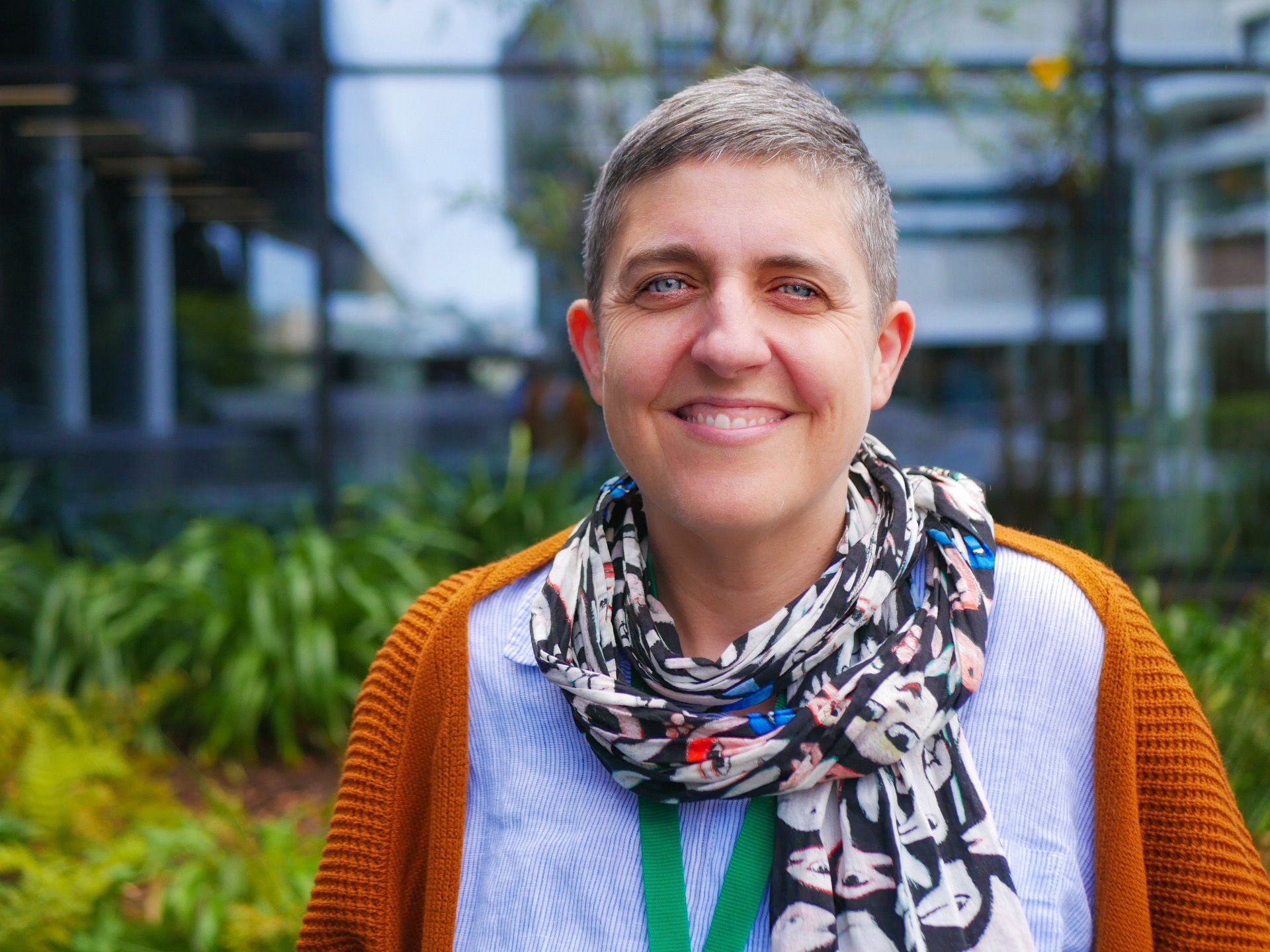
Dr George Parker
Dr George Parker
Annie
With the Generation Kāinga project, we are trying to set up a network so that when some of us go over the age threshold for this project, the network continues to build on the work that’s been done.
The team meets regularly to discuss the work, what they’d like to do next and the questions they would like to research. The hope is that the work continues, but even if that doesn’t happen, we’re providing research training to a whole set of people who haven’t been to university, which they can continue to use.
. . . we’re providing research training to a whole set of people who haven’t been to university, which they can continue to use.
Research mentioned in this story
- Generation Kāinga: Rangatahi building a regenerative and resilient Aotearoa
- Hearing the Difference, information about Dr Emily Beausoleil's initial Marsden Grant
- Warming the Whare for trans people and whānau in perinatal care, by Dr George Parker, Associate Professor Suzanne Miller, Professor Sally Baddock, Dr Jaimie Veale, Alex Ker, Dr Elizabeth Karekare.
